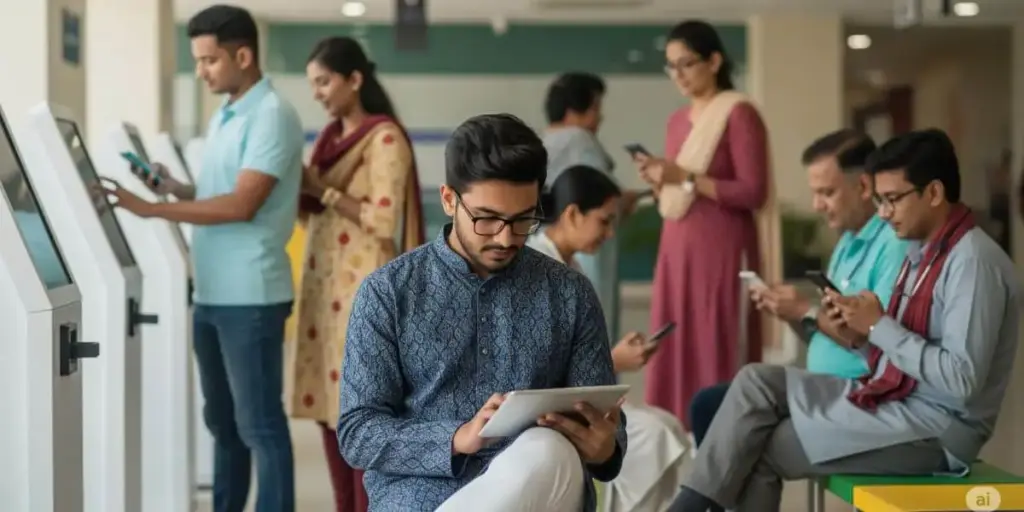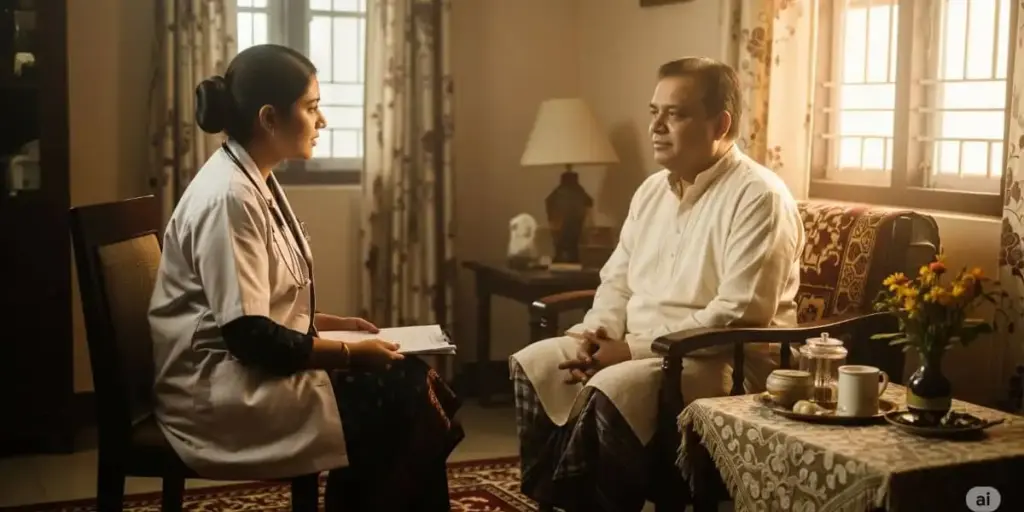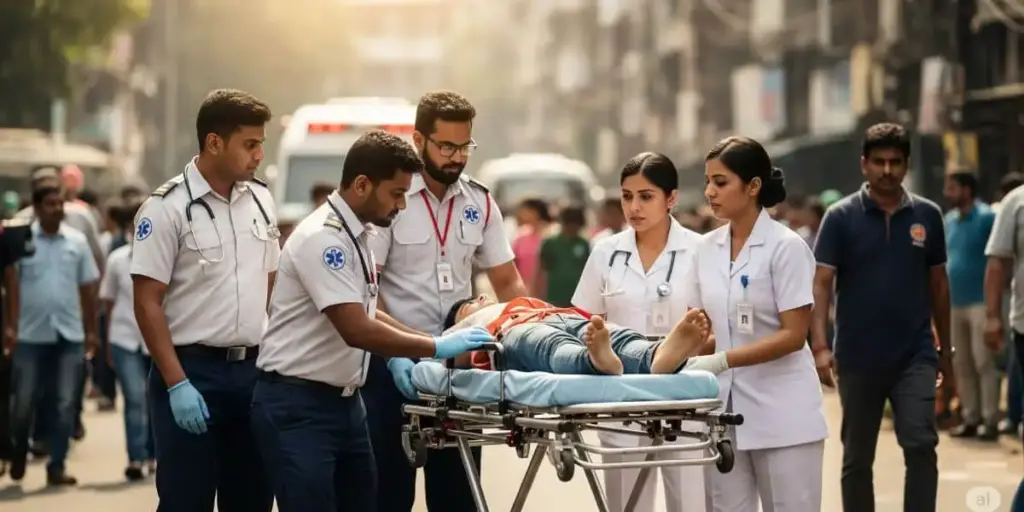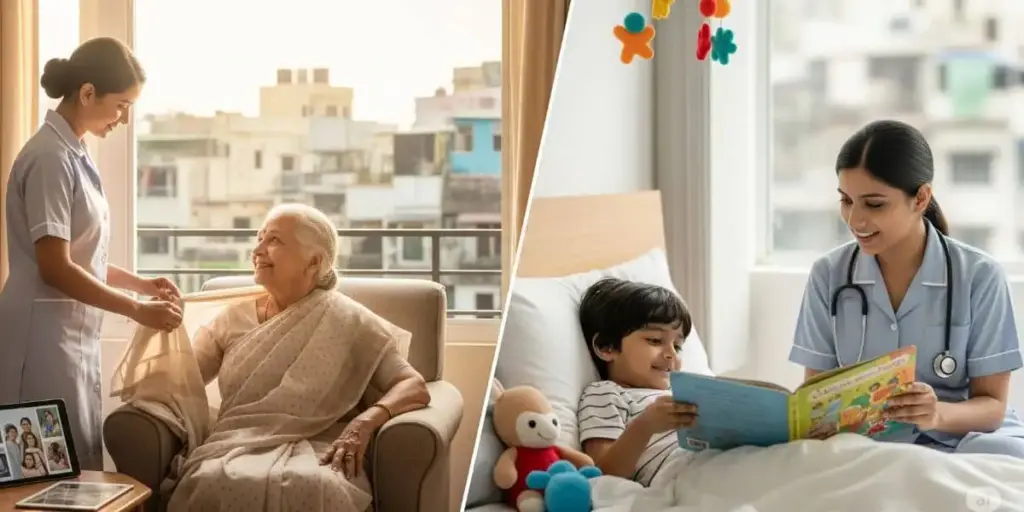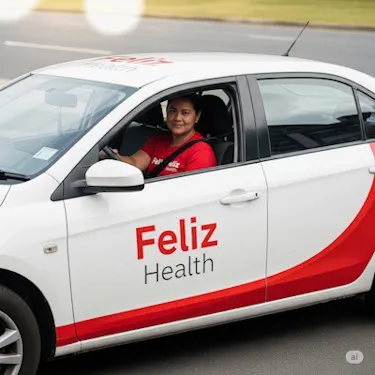Table of Contents
In today’s fast-paced digital world, 24/7 on-demand healthcare has revolutionized how we access medical services. This innovative model provides instant healthcare access anytime, anywhere, offering patients a level of convenience that was once unimaginable. By merging advanced technology with quality care, 24/7 on-demand healthcare ensures that help is just a tap away—literally transforming lives and saving time.
With the rise of telemedicine platforms, mobile health apps, AI-driven diagnostics, and emergency service integrations, the healthcare ecosystem is now more responsive and user-friendly. Whether it’s a late-night fever, a midday accident, or urgent mental health support, 24/7 on-demand healthcare guarantees that no patient is left waiting.
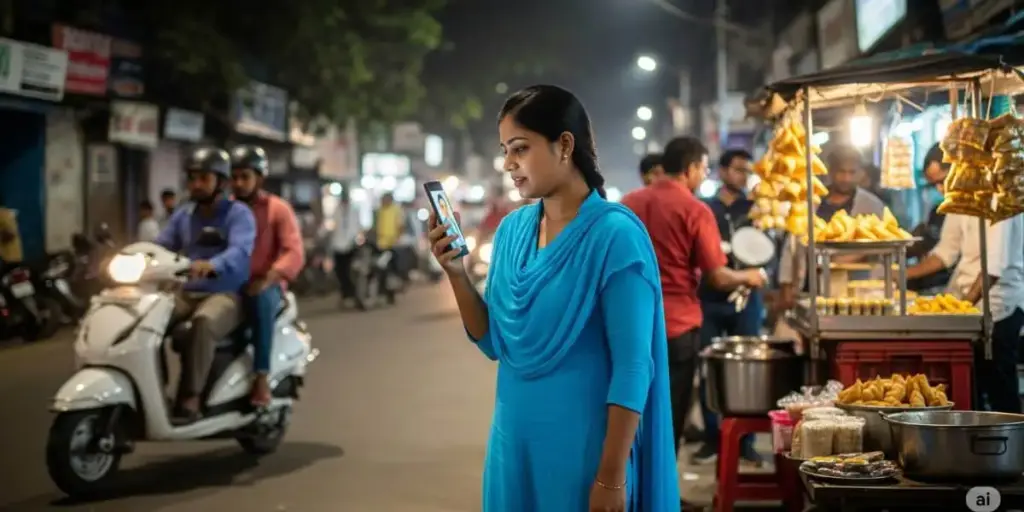
What is 24/7 On-Demand Healthcare?
24/7 on-demand healthcare refers to the continuous availability of medical services through digital platforms, virtual consultations, mobile apps, and connected emergency support systems. It brings real-time access to doctors, nurses, ambulances, caregivers, and pharmacists—anytime, day or night.
These services are typically offered through:
- Telemedicine Platforms like Teladoc Health, Practo, and Zocdoc
- Mobile Healthcare Apps such as Feliz Health, Doctor on Demand, and MDLIVE
- AI Chatbots and Virtual Assistants
- Emergency Support Services including 24/7 ambulance booking, caregiver services, and online pharmacy delivery
The ultimate goal is to offer timely, affordable, and personalized care without long hospital queues or delayed appointments.
Why is 24/7 On-Demand Healthcare Important Today?
In the post-pandemic world, healthcare accessibility has become a pressing priority. People want solutions that are instant, safe, and accessible remotely. Traditional systems are often plagued by wait times, geographical limitations, and overwhelming costs. 24/7 on-demand healthcare eliminates these barriers by:
- Offering remote consultation via smartphone or web
- Providing faster response in emergencies
- Bridging the gap between patients in rural areas and specialists in cities
- Reducing hospital crowding and unnecessary in-person visits
More than a convenience, it’s a lifesaving innovation.
Key Benefits of 24/7 On-Demand Healthcare
1. Instant Medical Access
With 24/7 on-demand healthcare, you no longer need to wait for clinic hours. A licensed doctor or healthcare professional is always available, often within minutes, for:
- Virtual consultations
- Prescription renewals
- Diagnostic advice
- Follow-ups
This is especially useful for working professionals, parents, and the elderly, who may struggle to visit clinics during regular hours.
2. Emergency Services at Your Fingertips
Apps like Feliz Health allow users to book ambulances, schedule a doctor home visit, or request a caregiver with cab—all with just a few taps. This ensures zero delay in critical moments, where every second matters.
3. Affordable & Transparent Pricing
Most platforms offer transparent pricing models with pay-as-you-go or subscription-based options. This helps avoid the unpredictability of traditional billing, especially in private hospitals.
Additionally, insurance integrations with platforms like HealthifyMe or Bajaj Finserv Health ensure even wider access to benefits.
4. Personalized Healthcare Experience
With AI and machine learning, 24/7 on-demand healthcare platforms offer personalized care plans based on:
- Health history
- Lifestyle choices
- Real-time data from wearables
- Previous consultations
This leads to better outcomes, reduced errors, and higher patient satisfaction.
5. Mental Health and Counselling Support
Mental health professionals are also now accessible 24/7. Through apps like BetterHelp or Mindhouse, users can get instant counseling or therapy sessions, no matter the time of day.
How Does 24/7 On-Demand Healthcare Work?
Step-by-Step Breakdown:
- Sign Up on a Healthcare App like Feliz Health or Practo
- Select the Service Needed – video consult, ambulance, caregiver, or home doctor visit
- Get Matched with a Provider in seconds
- Receive Treatment or Support
- Access Reports, Prescriptions, or Follow-ups digitally
All records are securely stored and accessible anytime, making your healthcare history portable.
Technology Powering the Revolution
1. AI and Machine Learning
- Symptom checkers
- Predictive analytics
- Health monitoring from wearables
These tools support faster diagnosis and personalized recommendations.
2. IoT and Wearables
Smart devices like Fitbit, Apple Watch, and Samsung Health feed real-time data into your healthcare app, enabling proactive care and remote monitoring.
3. Cloud-Based EHR (Electronic Health Records)
Medical history, test results, prescriptions—all accessible and sharable instantly with specialists for coordinated treatment.
Challenges and Considerations
While 24/7 on-demand healthcare offers numerous advantages, it’s not without challenges:
- Digital Literacy: Not all populations are equally tech-savvy.
- Data Privacy: Platforms must comply with HIPAA, GDPR, or India’s Digital Personal Data Protection Act.
- Over-reliance on Tech: Some diagnoses still require in-person evaluation or lab testing.
Therefore, hybrid models that combine digital convenience with offline capability offer the most sustainable solution.
24/7 On-Demand Healthcare in India: The Growth Story
India, with its vast population and fragmented healthcare access, is uniquely positioned to benefit from on-demand healthcare. Startups like:
are changing the way Indians approach care, especially in Tier II and Tier III cities.
The government’s push through the Ayushman Bharat Digital Mission (ABDM) is accelerating digital health infrastructure, aiming for Health IDs and unified digital health records for every citizen.
The Future: What’s Next in On-Demand Healthcare?
The next wave of innovation will likely include:
- Virtual reality (VR) for therapy and rehab
- AI Doctors and ChatGPT-like assistants for triaging
- Drone delivery of medicines and test kits
- Blockchain for medical record security
- Global telemedicine collaborations with multilingual, cross-border care
As 5G and satellite internet expand into remote areas, connectivity barriers will disappear, making 24/7 on-demand healthcare a truly universal reality.
Conclusion: Embrace the New Era of Care
24/7 on-demand healthcare is more than a technological advancement—it’s a societal shift. It brings accessibility, speed, and comfort to millions who previously struggled with traditional systems. As this model continues to evolve, it will not only enhance patient outcomes but also reduce the strain on healthcare infrastructure globally.
Now is the time to embrace this innovation—because health emergencies don’t follow a schedule, and neither should healthcare.
Frequently Asked Questions (FAQs)
Q1: Is 24/7 on-demand healthcare reliable for emergencies?
Yes, many platforms like Feliz Health and Medibuddy offer verified emergency response services, including ambulance booking and on-call doctors. However, critical emergencies should still go directly to the nearest hospital if possible.
Q2: Are online consultations valid for prescriptions?
Absolutely. Registered medical professionals on platforms like Practo and Doctor on Demand can issue digitally signed prescriptions that are valid at most pharmacies.
Q3: How secure is my data on these platforms?
Most providers follow strict data protection protocols including encryption, HIPAA, GDPR, and India’s health data guidelines. Always ensure you are using a verified app or service.
Q4: What services are typically offered in 24/7 on-demand healthcare?
Services may include virtual doctor consultations, ambulance booking, medicine delivery, home nursing or caregiver services, mental health counseling, lab test scheduling, and emergency care coordination—all accessible via mobile apps or websites.
Q5: Can 24/7 on-demand healthcare be used for chronic disease management?
Yes. Many platforms provide long-term health monitoring, follow-up consultations, and customized care plans for chronic conditions such as diabetes, hypertension, asthma, and cardiovascular issues, all managed remotely.
Q6: Is an internet connection mandatory to access on-demand healthcare services?
Yes, a stable internet connection (mobile data or Wi-Fi) is required to access app-based healthcare services, especially for video consultations or real-time updates. However, some platforms also offer SMS or call-based support in low-connectivity areas.
Q7: Can I access pediatric or senior care services through on-demand healthcare apps?
Absolutely. Many platforms offer specialized services for children and the elderly, including pediatric teleconsultation, vaccination reminders, geriatric caregiving, and emergency alert systems.
Q8: Are these services covered under health insurance?
Some on-demand healthcare services are integrated with insurance providers, allowing users to claim reimbursements, access cashless consultations, or even book services using insurance benefits. Always check with your provider.
Q9: How can I trust the quality of care offered by on-demand platforms?
Reputed platforms vet all healthcare professionals for qualifications, experience, and licensing. Look for user ratings, reviews, and accreditations to ensure the quality of care.
Q10: Do I need to download an app to use 24/7 on-demand healthcare services?
While most services are app-based, many also offer web-based portals, hotlines, or WhatsApp-integrated services. Platforms like Feliz Health combine both app and browser interfaces for easy access.
Q11: Can I schedule appointments in advance or is it only for immediate needs?
Yes, while on-demand healthcare excels at real-time care, most apps also allow scheduling future appointments, routine health check-ups, and home visits, ensuring flexibility and convenience.
Q12: What is the average response time for virtual consultations?
Typically, you can connect with a licensed doctor within 2 to 10 minutes, depending on platform traffic and service type. For premium plans, response time may be even faster.

